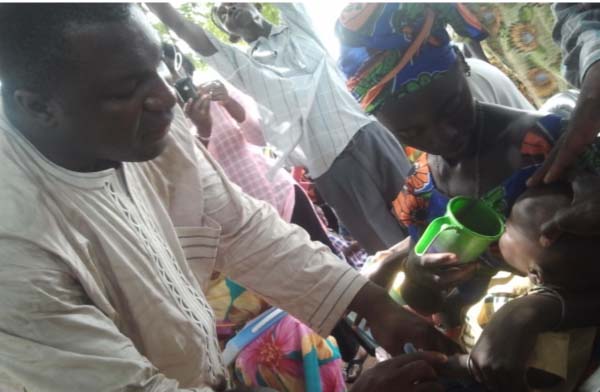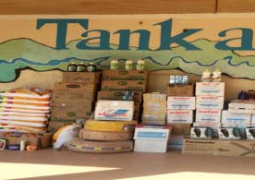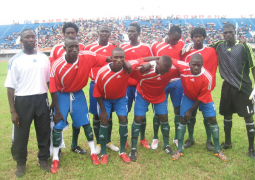
The National Malaria Control Programme (NMCP) in partnership with the regional health team and communities at weekend launched the Seasonal Malaria Chemotherapy (SMC) campaign at Bantanto village in the Central River Region South.
In his launching statement, Balla Kandeh, programme manager NMCP, said the launching clearly demonstrated the level of partnership established over the years by the Ministry of Health and the NMCP.
The Ministry of Health enjoys a broad range of partnerships across all sectors of the society including the media houses, community-based organizations and civil society organizations, he added.
Kandeh further stated that controlling and preventing malaria requires a collaborative effort from all sectors of the society.
Everyone could help in advocacy, social mobilization campaigns and showcase the efforts made against combating the disease, he went on.
According to Mr Kandeh, malaria remains a major public health problem with an estimated 216 million clinical episodes and 655, 000 deaths worldwide including in sub-Saharan Africa, where children under 5 years of age bear most of the burden.
He said in 2010, it was estimated that 86 per cent of all malaria deaths occurred in that age group.
Mr Kandeh stressed that with the changing epidemiology of malaria, there has been a progressive shift from a ‘one size fits all’ approach to targeting malaria control strategies to specific populations and or locations for maximal effectiveness.
“In line with this approach and on the basis of new evidence, WHO recommends an additional intervention against plasmodium falciparum malaria - seasonal malaria chemoprevention (SMC). This intervention has been shown to be effective, cost-effective, safe and feasible for preventing malaria among children under 5 years of age in areas with highly seasonal malaria transmission,” he said.
Pa Ousman Manneh, communication development officer UNICEF, described the event as very timely as it came a week following the successful National Immunization Day which was integrated with vitamin A supplementary and deforming.
He said this year marks the 25th year of the Convention on the Rights of the Child (CRC), which is being commemorated globally by UNICEF throughout the year.
Manneh added that across the Sahel, most childhood mortality and morbidity from malaria occurs during the rainy season, and giving effective anti-malaria medicine at full treatment doses at appropriate intervals during this period has been shown to prevent illness and death from malaria in children.
The regional director of health CRR, Ebrima Jarju , said these success were made possible through the use of the NMCP programme strategy, whichaims to increase coverage and consolidate the gains made through the use of the most effective, available, and evidence-based interventions to achieve a high impact, as part of an integrated approach to malaria control being used.
He said these focus mainly on preventive and control strategies through widespread universal access to Long Lasting Insecticide-treated Net (LLINs), prompt and effective case management, Indoor Residual Spraying (IRS), and Intermittent Preventive Treatment in Pregnancy.
Dr Samba Ceesay, director of health, said the reduction in the impact of malaria is key to the achievement of the Millennium Development Goals, especially MDGs 4, 5 and 6.
The launching of the 2014 SMC campaign ismoment for sober reflection on the progress made, and to renew their collective efforts towards eventually eliminating malaria in The Gambia, he added.
Read Other Articles In Article (Archive)
Sintet LBS wins Eastern Foni Federation inter-schools quiz competition
May 20, 2016, 12:03 PM




